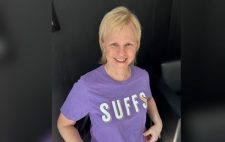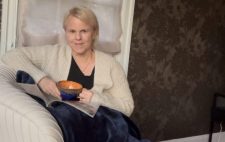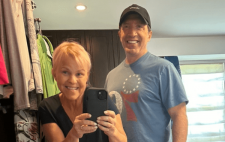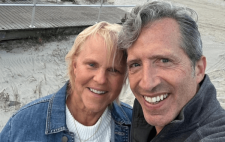When my oldest daughter was in high school, I tried to convince her it was a big deal that she was on the robotics team, that some people once believed a girl’s brain couldn’t understand robotics. With great passion, I told her that women had fought and pushed for decades so she could make that team. But she didn’t really get it.
That nonchalance is common, and I’ve witnessed many discussions where younger women can’t quite grasp what women in the ’60s and ’70s went through to bring us the opportunities we have today. I think part of the reason for that is we talk about these women almost like we do the Founding Fathers – they’re this mysterious group that existed once, long ago. They were great, but nobody we know ever met them.
That is, until earlier this year, when I discovered I had met one. In fact, I not only met one of these pioneer women, but she has been a trusted advisor and mentor to me for years. Anne Klein, who founded a crisis communications firm in Mount Laurel in 1982, has sat with me at lunch and given me her wise opinion on the magazine, my career and plenty of other things. Last year, when we experienced a PR issue, she was the first person I called. It was 10 pm and she picked up, saying, “Marianne? What is it?”
Anne had mentioned to me that she was writing a book about the women she went to college with, but I didn’t know much of the details. The book was released earlier this year, and I read it to discover these weren’t just women Anne went to school with – these were women who fought and pushed to enter college, and then fought and pushed to have successful careers. These were women who paved the way for women like me.
There were 19 of them, and they graduated from the University of Pennsylvania in 1964. They had no female role models, and often, each was the only woman in a classroom of men (especially if they were studying medicine). They weren’t allowed to take statistics classes, and if they wanted to graduate with a degree in chemistry, they had to take extra courses in addition to what was required for men. They couldn’t wear pants outside their dorms, they had to be “properly dressed” to go to the dining hall and if they went on a date, they were expected to wear high heels.
Anne’s book, called “On the Cusp,” tells the amazing stories of each of these 19 women. Marion Hubing graduated second among Penn’s chemical engineering majors, but she was not permitted into the engineering honor society because she was a woman. She went on to work as a chemical engineer at Sun Oil for 20 years then left to attend law school.
Constance Horner served in high-level appointments for both the Reagan and Bush administrations. Faye Laing, MD, became an expert in ultrasound, starting her career in medicine just as the technology hit the market. (She describes how the “dinosaur-looking piece of equipment” was placed in her office because no one had any interest in it.) And Susan Hoffman retired after 20 years as an IBM systems engineer, only to be bored and begin working again after six months.
Anne describes how she had wanted to major in corporate finance, but the chair of Penn’s finance department said no woman would graduate with a corporate finance degree while he was chair. So she majored in marketing, where a male chair agreed to accept a woman into his program.
Last month, we honored Anne with our Women of Excellence Lifetime Legacy award, and as she was coming on stage, I motioned to the audience and said, “All of the women here would like to thank you for what you and your classmates did.” I hadn’t prepared to say that, but when I saw the audience rise for a standing ovation, it was natural. It was what they were saying by standing. It was a thank you that needed to be said. I’m happy we had someone to say it to.
You can see Anne’s Women of Excellence video at sjmagazine.net, along with our other honoree videos. Her book, “On the Cusp,” is available on Amazon.














